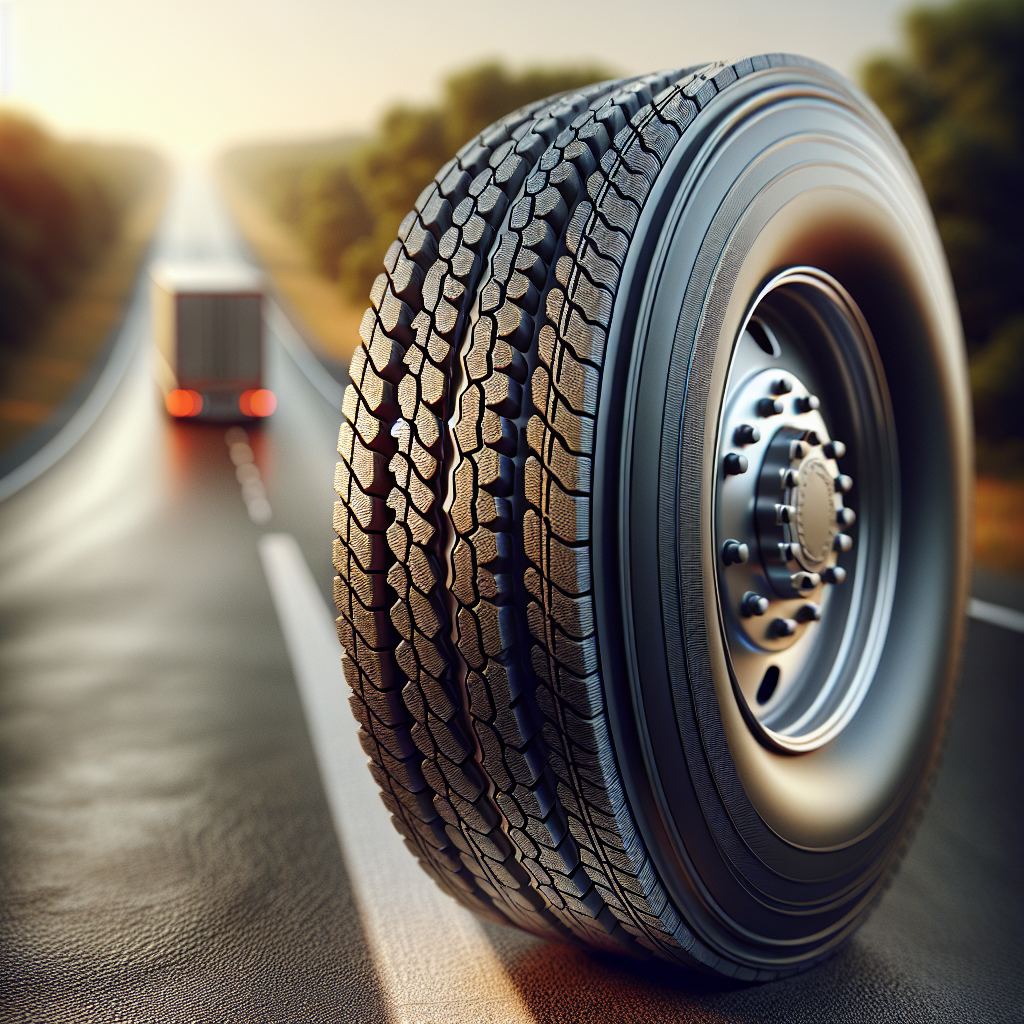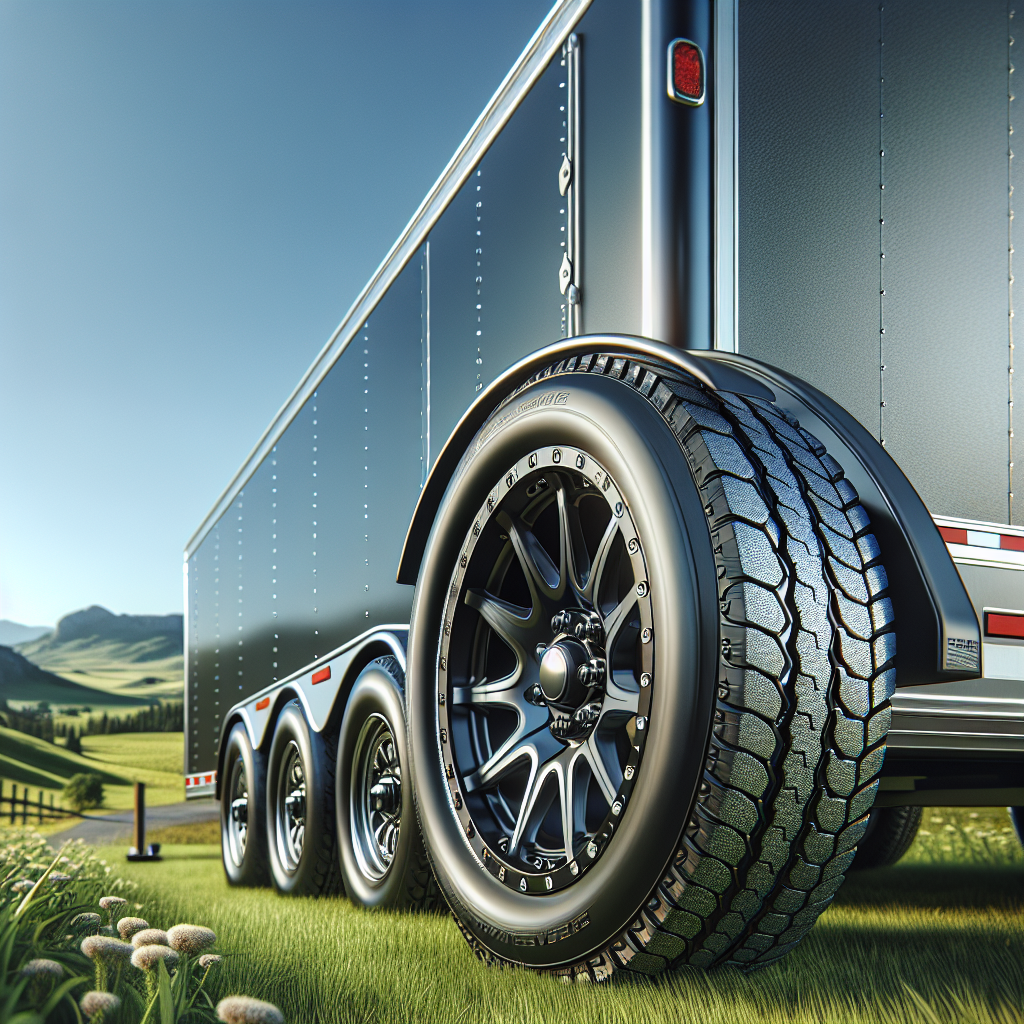Maintaining the correct tire pressure on your trailer is crucial for both safety and performance. **_Understanding trailer tire pressure importance_** can prevent accidents and ensure your vehicle operates at its best.
When tires are not properly inflated, several issues can arise:
- Increased Wear and Tear: Under-inflated tires wear more quickly, leading to premature replacement and increased costs.
- Reduced Fuel Efficiency: Incorrect tire pressure can decrease the fuel efficiency of your towing vehicle, leading to higher operational costs.
- Risk of Blowouts: Over-inflation can cause tires to burst, while under-inflation can lead to overheating and blowouts, posing serious safety risks.
Regularly checking tire pressure can help you avoid these dangers. It is recommended to check your trailer's tires at least once a month and before long trips. Use a reliable tire pressure gauge to ensure your tires are inflated to the manufacturer’s specifications. This information can usually be found on the trailer's placard or in the owner’s manual.
By staying vigilant about tire pressure, you can enhance your trailer's performance and safety. Tow with peace of mind, knowing that trailerwatchdog is standing guard.
Recommended Tire Pressure for Different Trailers

When it comes to **_recommended tire pressure for different trailers_**, it is important to note that various types of trailers have unique specifications. Understanding these recommendations can help optimize performance and safety during your travels.
Here are some general guidelines for tire pressure based on trailer types:
- Utility Trailers: Typically, a utility trailer may require tire pressures between 50 to 70 PSI. This range provides adequate support for heavy loads.
- Camping Trailers: For camping or travel trailers, the recommended tire pressure usually falls between 45 to 65 PSI, depending on their weight and load distribution.
- Boat Trailers: Boat trailers often have a recommended tire pressure of 50 to 60 PSI, helping to ensure stability while towing over various terrains.
- Horse Trailers: These trailers generally require a tire pressure of 50 to 70 PSI, as they need to support the weight of both the trailer and the horses safely.
It is essential to check the **_manufacturer's placard_** on your trailer or refer to the owner’s manual for the exact specifications. Always adjust your tire pressure according to the load you will be carrying, keeping in mind that temperature fluctuations can also affect tire pressure.
How to Check Tire Pressure on Your Trailer

Knowing _how to check tire pressure on your trailer_ is crucial for ensuring safety and optimal performance. Regular checks can prevent tire blowouts and extend the life of your tires. Here’s a step-by-step guide to help you monitor tire pressure effectively:
- Gather Your Tools: You'll need a reliable tire pressure gauge. Digital gauges tend to be more accurate than analog ones, but either will work well if used correctly.
- Check the Tire Pressure When Cold: For the most accurate reading, it’s best to check tire pressure when the tires are cold, ideally before you’ve traveled more than a mile.
- Remove the Valve Cap: Unscrew the valve cap from the tire you want to check. Keep it in a safe place so you don’t lose it.
- Attach the Gauge: Firmly press the tire pressure gauge onto the valve stem. You should hear a short hissing sound as the air escapes briefly; this is normal.
- Read the Pressure: Observe the reading on the gauge. Compare it to the manufacturer’s recommended pressure, which can usually be found on a sticker on the trailer or in the owner’s manual.
- Adjust Pressure as Needed: If the tire pressure is too low, use an air compressor to inflate it to the recommended level. If it's too high, release some air until the correct pressure is achieved.
- Replace the Valve Cap: Don’t forget to screw the valve cap back on to protect the valve from dirt and debris.
Regular tire pressure checks should be part of your maintenance routine, especially before long trips. Keeping your tires at the optimal pressure enhances fuel efficiency and provides a smoother towing experience.
Factors Affecting Trailer Tire Pressure

Understanding the _factors affecting trailer tire pressure_ is essential for maintaining your trailer's safety and performance. Several elements can influence tire pressure, and being aware of them can help you make informed decisions:
- Temperature Changes: Tire pressure can fluctuate significantly with temperature changes. As the temperature rises, tire pressure increases, and when it drops, so does the pressure. For every 10°F change in temperature, tire pressure can change by about 1 PSI. This means seasonal changes can have a notable effect on your trailer’s tire pressure.
- Load Weight: The weight of the load you're carrying can impact tire pressure. Overloading a trailer can cause tires to deflate faster and can lead to excessive wear or even blowouts. Always check the manufacturer’s recommendations for maximum load limits to ensure proper tire inflation.
- Driving Conditions: Factors such as road conditions, speed, and driving style can also influence tire pressure. For example, driving on rough or uneven terrain can lead to temperature increases in tires, thereby affecting their pressure. Frequent hard braking or accelerating can create additional heat and affect the integrity of the tires.
- Tire Age and Condition: Older tires or those with visible wear and tear may not hold air as well as new ones. It's crucial to regularly inspect your tires for signs of damage, such as cracks or bulges, which can also affect tire pressure.
- Altitude: If you’re towing your trailer in higher altitudes, the air pressure can decrease, impacting the tire pressure. It’s essential to take elevation into account, especially when traveling to mountainous regions.
By being mindful of these factors and regularly checking your tire pressure, you can enhance the safety and efficiency of your trailer.
Tips for Maintaining Proper Trailer Tire Pressure
Maintaining the correct tire pressure on your trailer is crucial for safety and performance. Here are some essential _tips for maintaining proper trailer tire pressure_:
- Regular Inspections: Make it a habit to check your tire pressure at least once a month. This includes checking before long trips or after significant temperature changes. Use a reliable tire pressure gauge to ensure accuracy.
- Follow Manufacturer Guidelines: Always refer to the trailer’s owner manual for the manufacturer’s recommended tire pressure. This information is usually found on a sticker located on the trailer’s frame or near the door.
- Adjust for Load: If your trailer is loaded with cargo, remember to adjust the tire pressure according to the load weight. Under-inflated tires can lead to poor handling and increased wear, while over-inflated tires can result in a harsh ride and reduced traction.
- Temperature Considerations: Be mindful of the temperature when checking tire pressure. Ideally, check tire pressure when the tires are cold, as driving can increase the temperature and inflate the pressure artificially.
- Rotate and Balance Tires: Just like your vehicle’s tires, rotating and balancing your trailer tires can help ensure even wear and prolong their lifespan. This practice can also aid in maintaining consistent tire pressure.
- Use a Tire Monitoring System: Consider investing in a tire monitoring system, such as the one offered by TrailerWatchdog. This technology provides real-time updates on tire pressure and temperature, allowing you to address any issues before they become serious problems.
By following these tips, you can help ensure that your trailer tires remain in optimal condition, enhancing safety and performance on the road.
Consequences of Incorrect Tire Pressure on Trailers

Understanding the _consequences of incorrect tire pressure_ on trailers is vital for any owner. Incorrect tire pressure can lead to a myriad of problems that not only affect the trailer’s performance but can also pose serious safety risks.
- Increased Tire Wear: Under-inflated tires can cause excessive wear on the outer edges, while over-inflated tires may lead to uneven wear in the center. This can shorten the lifespan of your tires, leading to premature replacements.
- Poor Handling: Incorrect tire pressure can significantly affect the handling of your trailer. Low pressure can lead to swaying, decreased stability, and difficulty in control, especially during turns or on uneven surfaces.
- Increased Fuel Consumption: When tires are not properly inflated, it can increase rolling resistance, leading to higher fuel consumption. This means you’ll not only spend more on fuel but also contribute to higher emissions.
- Risk of Blowouts: One of the most dangerous consequences of incorrect tire pressure is the risk of blowouts. Under-inflated tires are more susceptible to overheating, which can lead to catastrophic failures while on the road.
- Damage to Suspension: Incorrect tire pressure can also cause undue stress on your trailer’s suspension system. This can lead to costly repairs and affect the overall integrity of your trailer.
To avoid these consequences, it's essential to check your tire pressure regularly and maintain it within the manufacturer’s recommended levels. _Tow with peace of mind, knowing that TrailerWatchdog is standing guard_. Visit trailerwatchdog.com to learn more about our innovative tire monitoring solutions that keep you informed and safe on the road.








